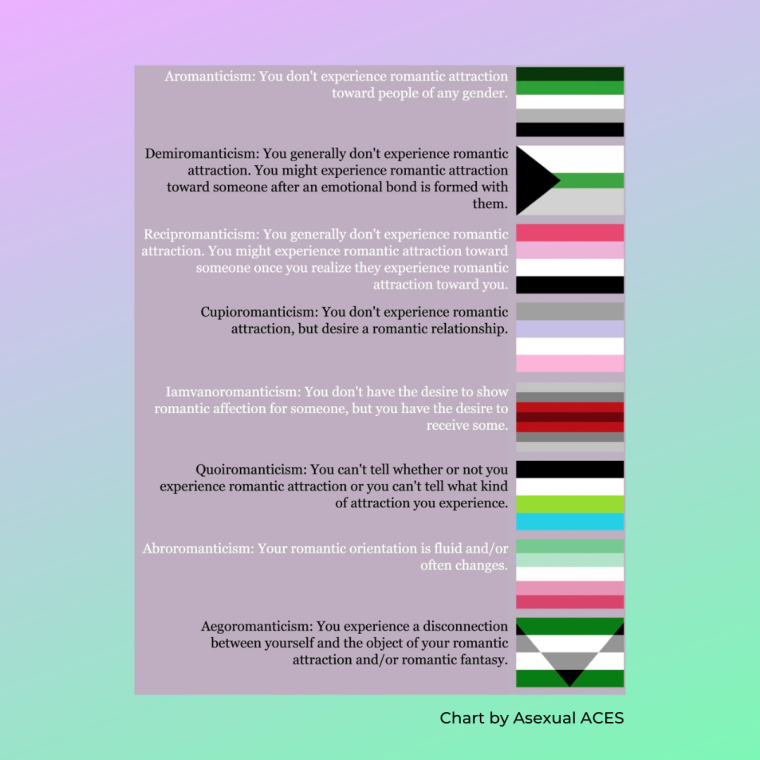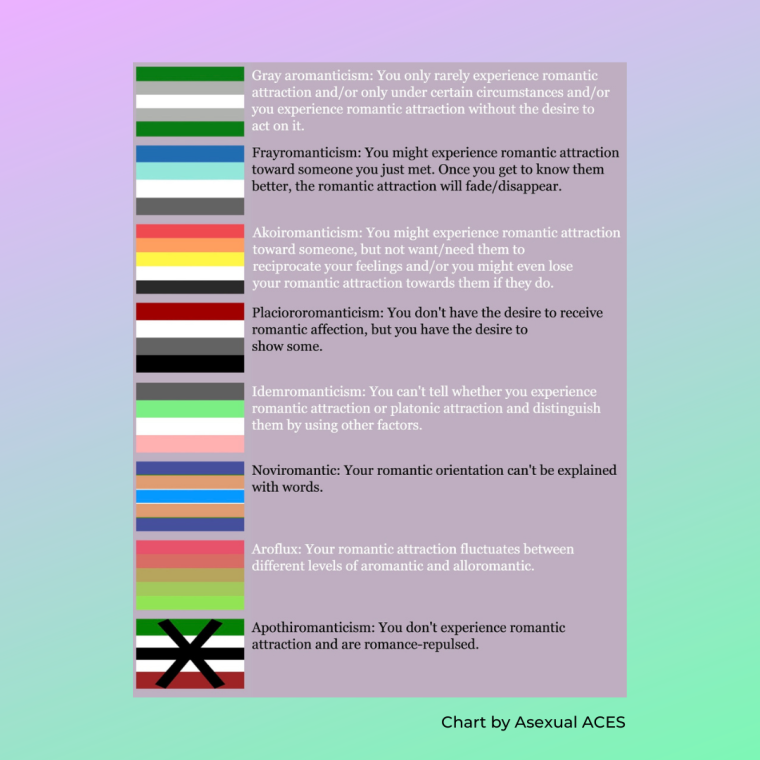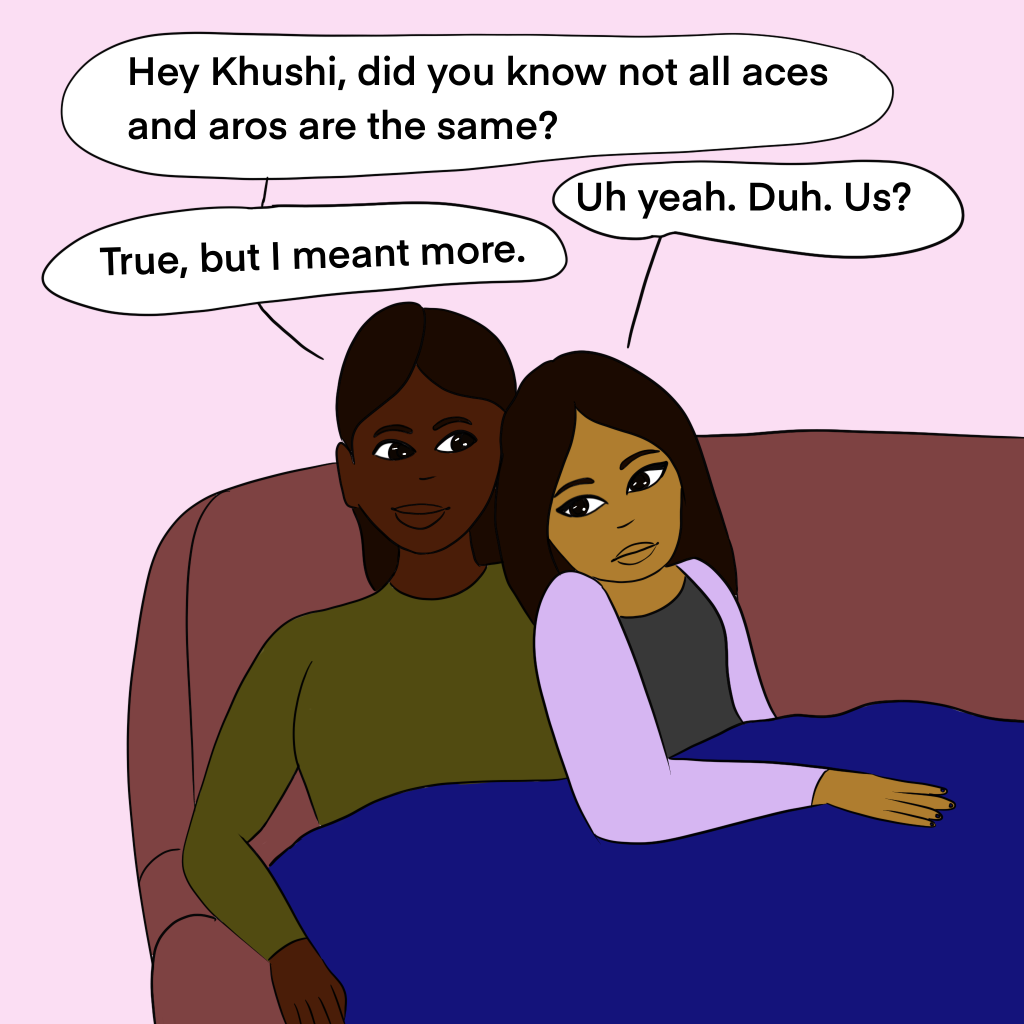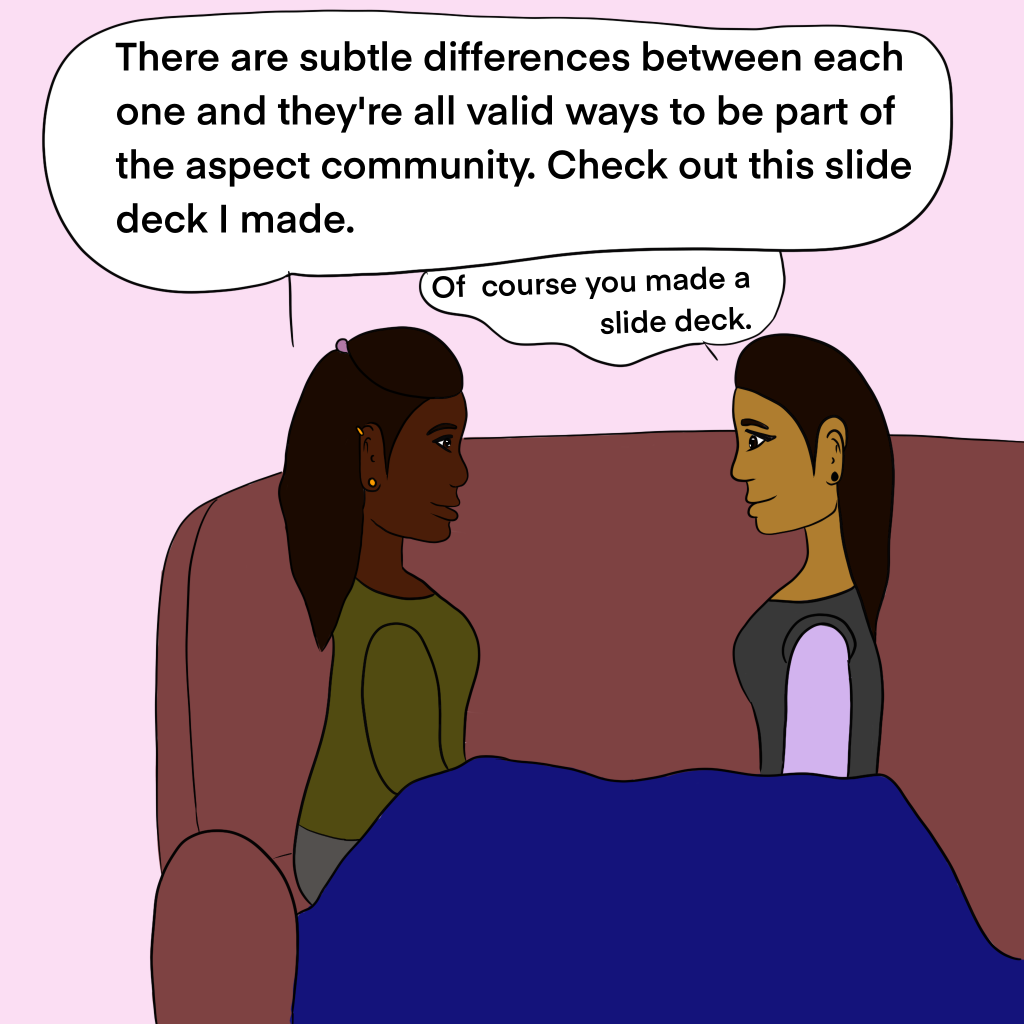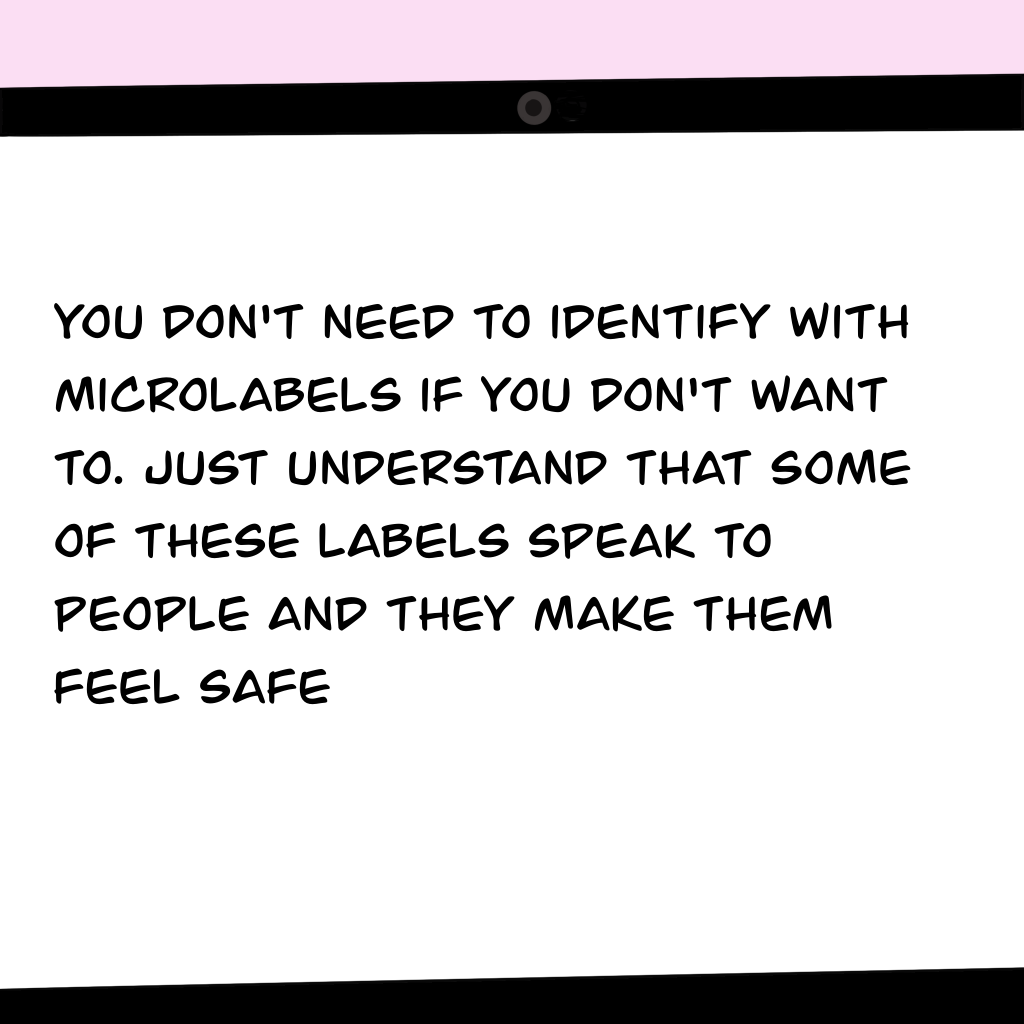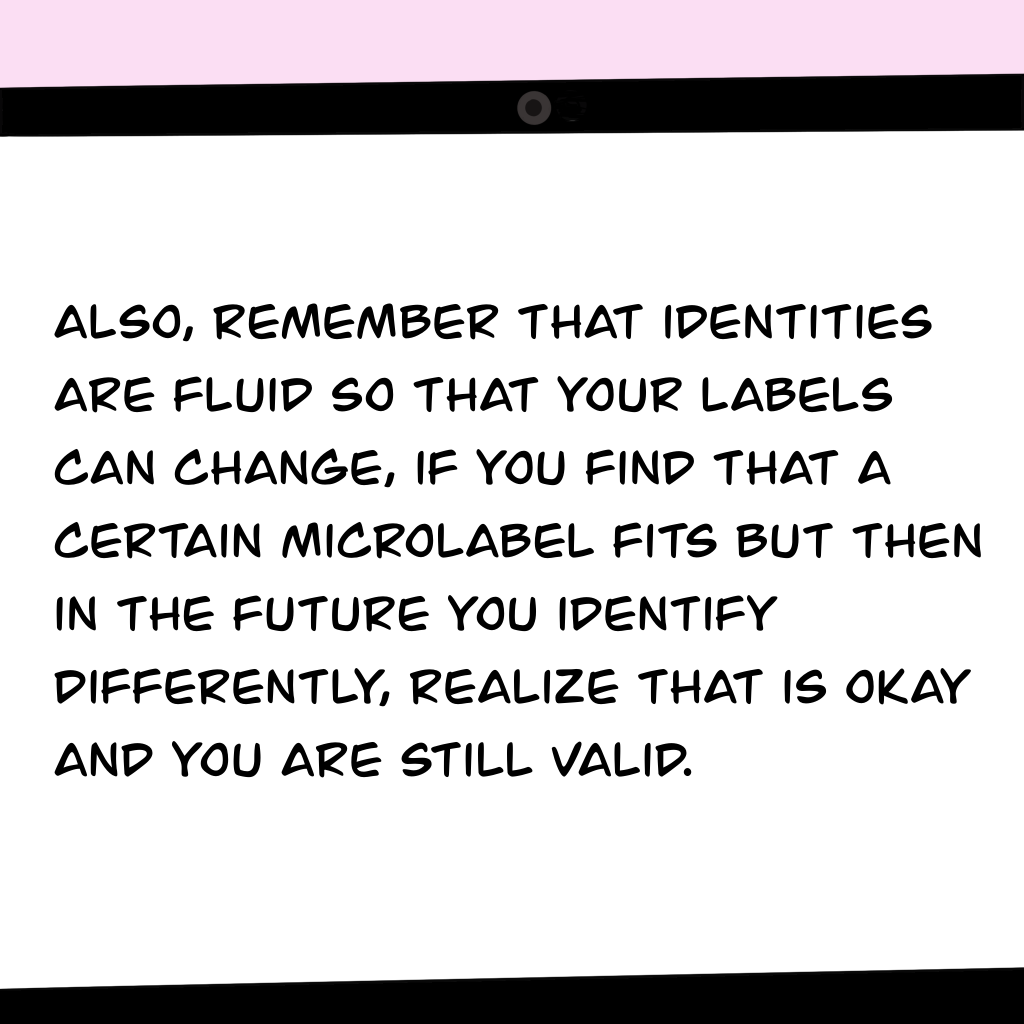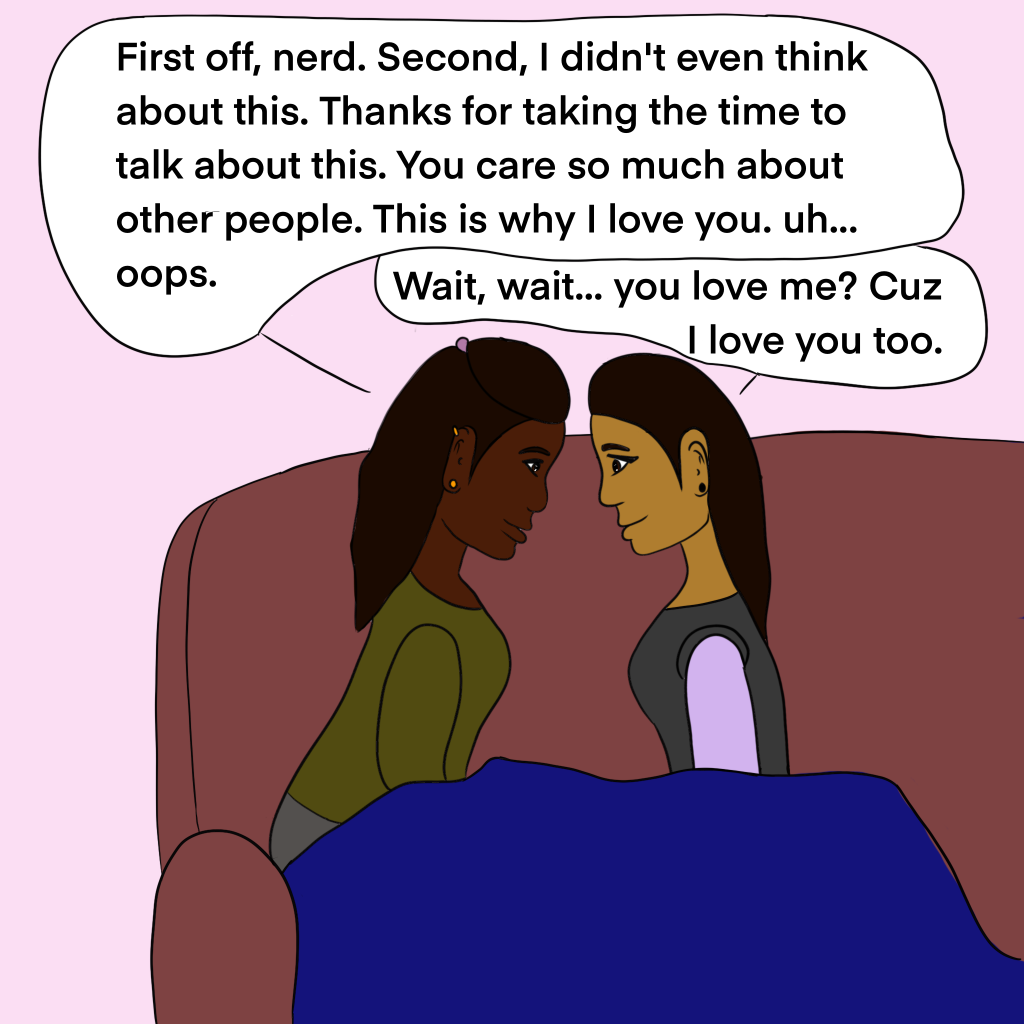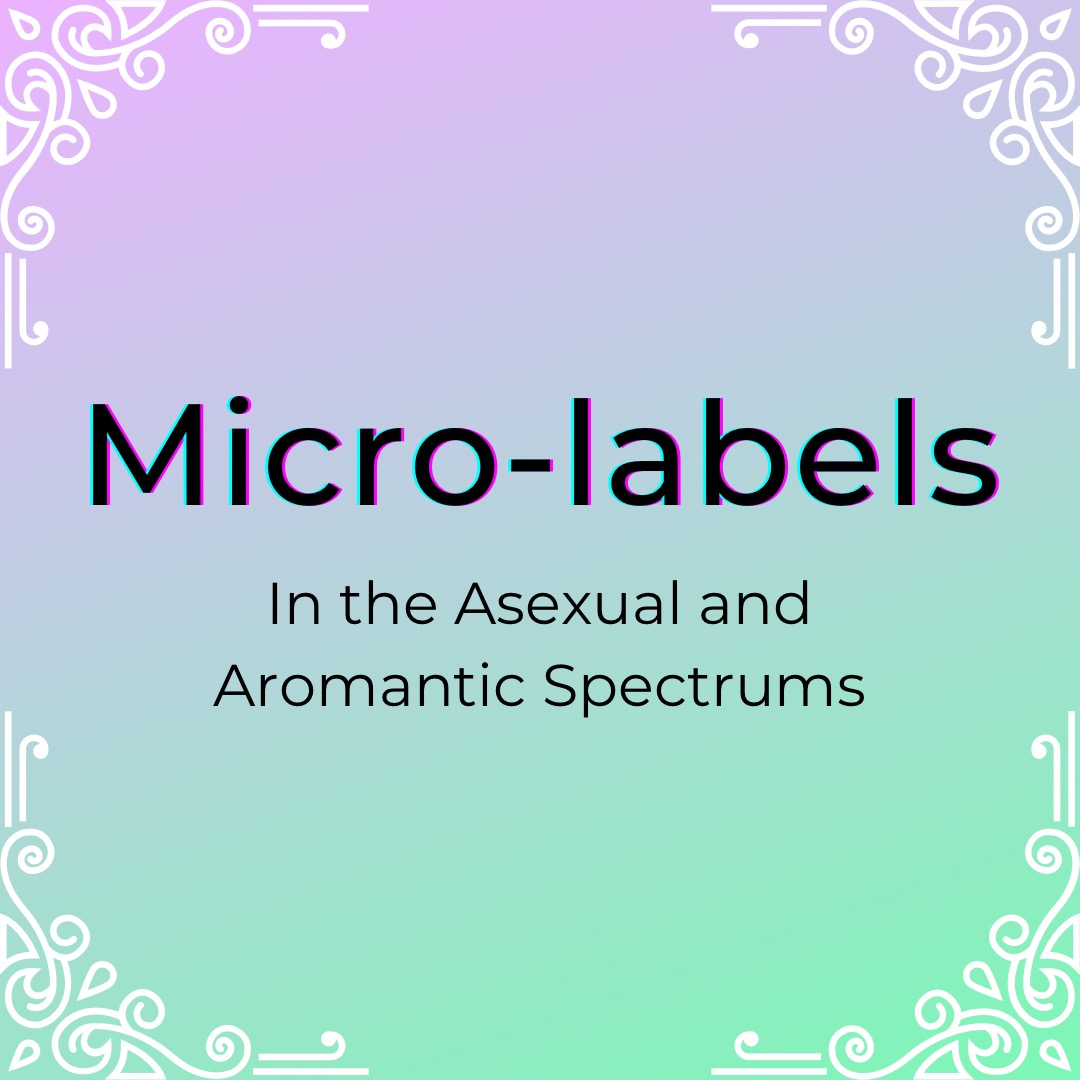

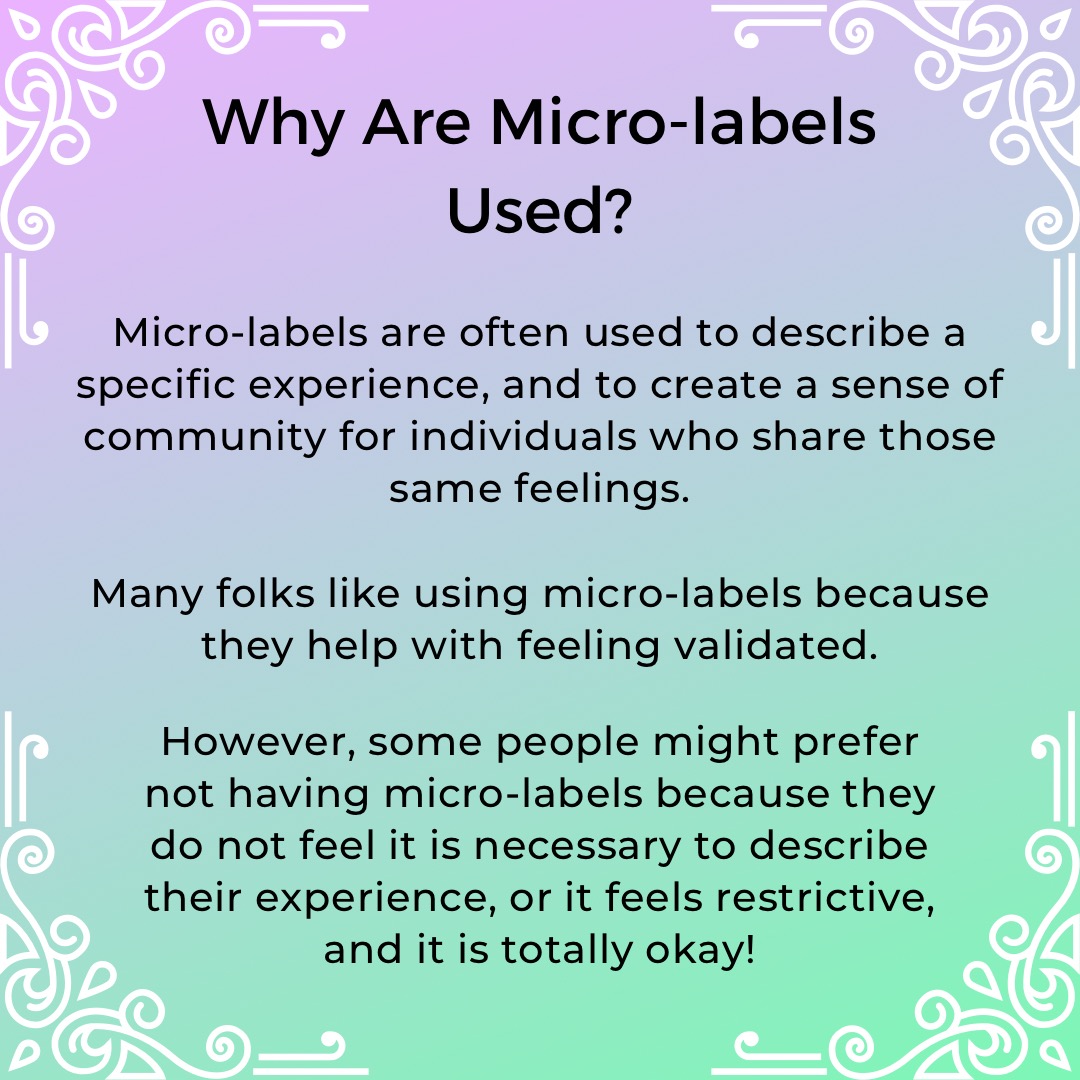
In our earlier segments, we discussed the Asexual and Aromantic spectrums, and we briefly introduced you to the various identities within the spectrum. As a reminder, not only are Asexual and Aromantic identities themselves, they are also umbrella terms. The “sub-categories” under the umbrella are known as micro-labels.
According to LGBTA Wiki, A micro-label is an identity that falls under the umbrella of a larger identity and cannot stand on its own. For example, an individual can identify as “apothisexual” to describe themselves as a sex-repulsed. You can assume this person also identifies as asexual because apothisexual is a sub-category of the asexual identity. However, another person who is sex-repulsed can just identify themselves as asexual.
Micro-labels are most often used to describe a specific experience, and to create a sense of community for individuals who share those same feelings. Many folks like using micro-labels because they provide a sense of validation.
However, some folks may not identify with a specific micro-label because they may feel their experience “may not line-up” with the micro-label, and they “may not want to be categorized into small boxes.” We have to remember labels should be descriptive, not prescriptive. Essentially, identities should help you describe yourself, not force you to align yourself with the dictated label. For example, if someone identifies as cupioromantic (described as someone who does not experience romantic attraction but desires a romantic relationship) becomes romantically attracted to someone, it is perfectly fine! Just because this individual experienced romantic attraction does not disqualify them as cupioromantic. Also, it is important to keep in mind that only you can label yourself, others cannot label you. Labeling others is oppressive and violates their human rights.
Below is a list of the asexual and aromantic spectrum identities.
**Note that this isn’t a comprehensive list and we may have missed some identities. Please let us know if there’s a label we missed that you would like us to add on here!
Asexual Spectrum Identities:
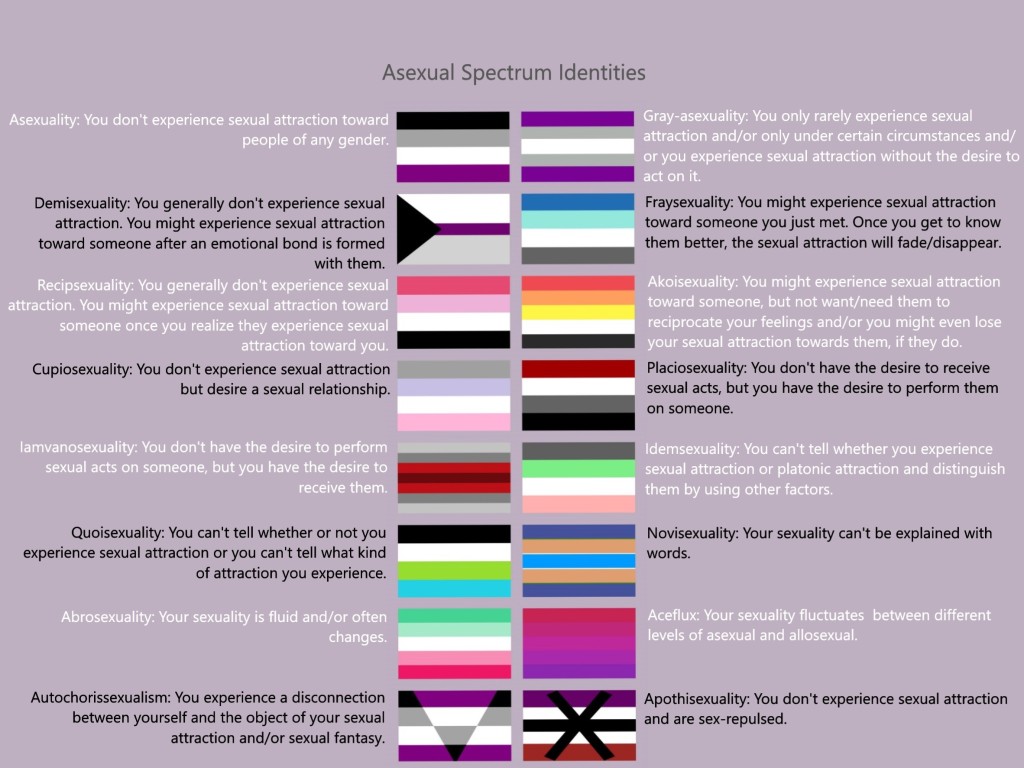
Demisexuality: you generally don’t experience sexual attraction. You might experience sexual attraction toward someone after an emotional bond is formed with them.
Recipsexuality (or Reciprosexuality): you generally don’t experience sexual attraction. You might experience sexual attraction toward someone once you realize they experience sexual attraction toward you.
Cupiosexuality: you don’t experience sexual attraction but desire a sexual relationship
Iamvanosexuality: you don’t have the desire to perform sexual acts on someone, but you have the desire to receive them.
Quiosexuality: you can’ tell whether or not you experience sexual attraction or you can’t tell what kind of attraction you experience
Abrosexuality: your sexuality if fluid and/or often changes
Autochorisexuality: you experience a disconnection between yourself and the object of your sexual attraction and/or sexual fantasy
Gray-asexuality: you only rarely experience sexual attraction and/or only under certain circumstances and/or you experience sexual attraction without the desire to act on it
Fraysexuality: you might experience sexual attraction toward someone you just met. Once you get to know them better, the sexual attraction will fade/disappear
Akoisexuality: you might experience sexual attraction toward someone, but not want/need them to reciprocate your feelings and/or you might even lose your sexual attraction towards them if they do
Placiosexuality: you don’t have the desire to receive sexual acts, but you have the desire to perform them on someone
Idemsexuality: you can’t tell whether you experience sexual attraction or platonic attraction and distinguish them by using other factors
Novisexuality: your sexuality can’t be explained with words
Aceflux: your sexuality fluctuates between different levels of asexual and allosexual
Apothisexuality: you don’t experience sexual attraction and are sex-repulsed
Aromantic Spectrum Identities:
Aromanticism: you don’t experience romantic attraction toward people of any gender
Demiromanticism: you generally don’t experience romantic attraction. You might experience romantic toward someone after an emotional bond is formed with them
Recipromanticism: you generally don’t experience romantic attraction. You experience romantic attraction toward someone once you realize they experience romantic attraction toward you
Cupioromanticism: you don’t experience romantic attraction, but desire a romantic relationship
Iamvanoromanticism: you don’t have the desire to show romantic affection for someone, but you have the desire to receive some
Quoiromanticism: you can’t tell whether or not you experience romantic attraction or you can’t tell what kind of attraction you experience
Abroromanticism: your romantic orientation if fluid and/or often changes
Aegoromanticism: you experience a disconnection between yourself and the object of your romantic attraction and/or romantic fantasy
Gray aromanticism: you rarely experience romantic attraction and/or only under certain circumstances and/or you experience romantic attraction without the desire to act on it
Frayromanticism: you might experience romantic attraction toward someone you just met. Once you get to know them better, the romantic attraction will fade/disappear
Akoiromanticism: you might experience romantic attraction toward someone, but not want/need them to reciprocate your feelings and/or you might even lose your romantic attraction towards them if they do
Placioromanticism: you don’t have the desire to receive romantic affection, but you have the desire to show them
Idemromanticism: you can’t tell whether you experience romantic attraction or platonic attraction and distinguish them by using other factors
Noviromantic: your romantic orientation can’t be explained with words
Aroflux: your romantic attraction fluctuates between different levels or aromantic and alloromantic
Apothiromanticism: you don’t experience romantic attraction and are romance-repulsed
The takeaway is whether or not you use micro-labels to describe yourself, you and your experiences are valid! Here’s a fun comic drawn by Bhavya, one of our lovely admins, on the importance of microlabels!
What are your thoughts on micro-labels? Feel free to share with us below, or DM us on Instagram!

